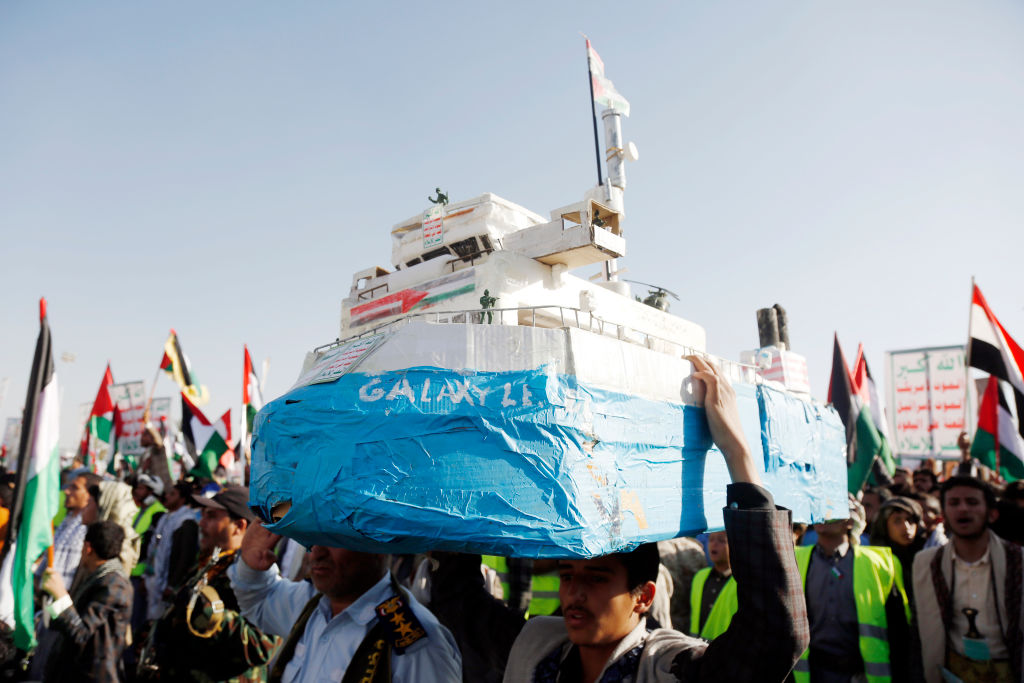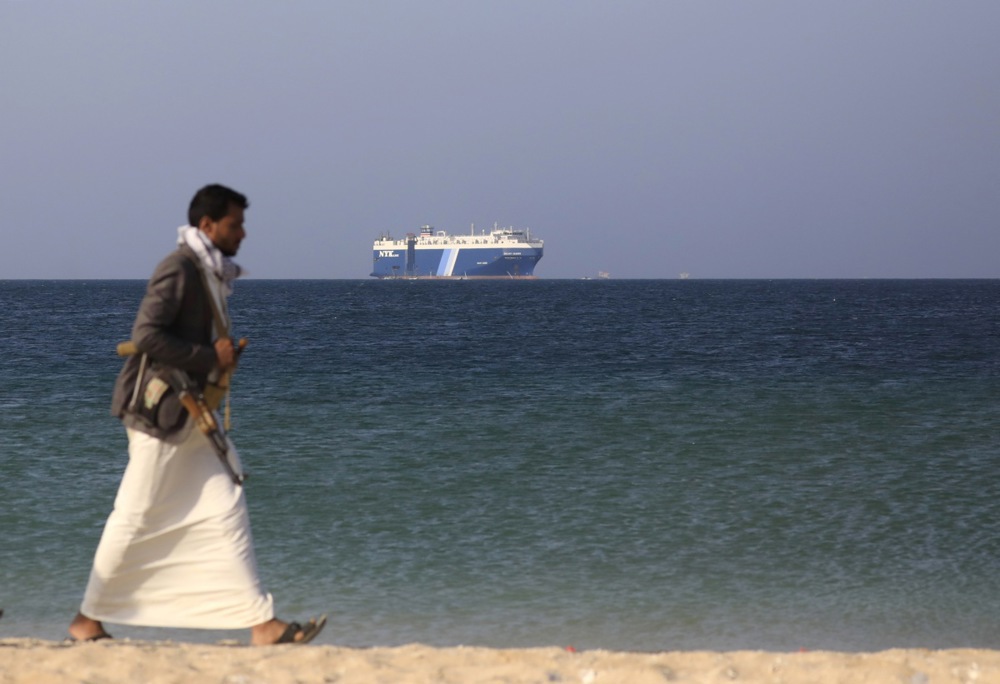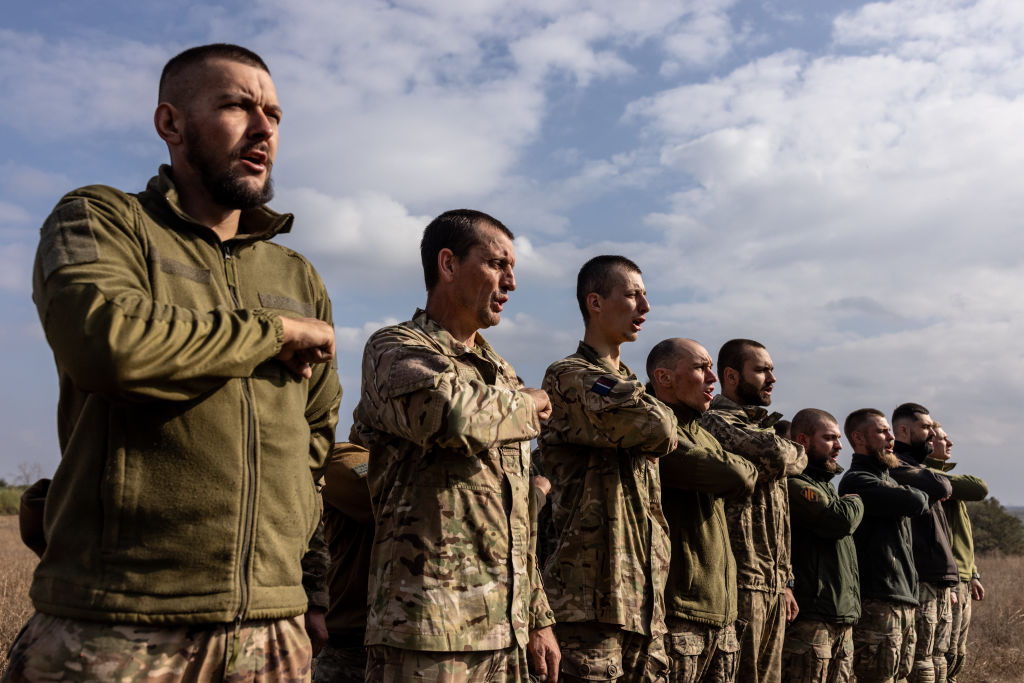Much of European public attention is riveted on internal issues such as net zero and deindustrialisation, the cost of living crisis, illegal migration or indeed the rise of the so-called “far Right” and the upcoming European Parliament elections. But it is the far greater risk to our future from the collapse of world order as we know it that is being severely under-appreciated.
The Ukraine war, which is now perceived – wrongly – as a “stalemate” and as a kind of slow grinding pattern happening in the background of most people’s daily concerns, is in fact an epochal event whose economic, political and geopolitical repercussions are only starting to be truly felt in Europe and across the world.
While the brave Ukrainian Armed Forces are still holding their ground and even managing daring strikes and raids well behind enemy lines, their position is increasingly precarious as US military aid is held up by Republican machinations in the US Congress. But even if US support should falter, Europe now seems more alive to the imperative of doing more to backstop Kyiv; the recently-announced UK-Ukraine security agreement is a case in point.
The problem, from a long-term perspective, is the lack of any serious prospect or strategy for an enduring peace settlement. There is no path back to normal or even stable relations with Russia for at least a generation even if by some miracle a solution is found to the Ukraine war.
Whether acknowledged or not, the US and the UK, in particular, but increasingly Europe as a whole, are now in a situation of total – though not yet hot – war with Moscow. Just as our side aims at crippling Russia, the Kremlin regime has made a definitive decision that it has an existential interest in the overthrow of the Western order no matter what or how long it takes. From overtly fraternising with the abominable HAMAS-ISIS beasts to rejecting even foundational elements of international law, it is clear that Putin and his allies see no limits in pursuing their goals.
In all of this, Russia has China as its like-minded ally. One of the great historical failures of Western statecraft in our times has been the inability to prevent Russia and China coming together into a realpolitik alliance, which is the most dangerous kind. Now Chinese industrial might is coupled directly to Russia’s vast and cheap energy and commodity reserves, tied together under what both sides have described as an “unlimited partnership”.
Three key aspects characterise our current strategic context:
- A new permanent state of crisis. We have entered a historical cycle of great shocks which are succeeding each other with compounding effect. We never had a chance to recover from the Covid disaster and now we are almost in the third year of a major war while confronting a maritime security crisis in the Red Sea and ongoing energy crisis whose ultimate cost we are yet to understand. Stabilising this situation and returning to the world before 2014 or even February 2022 is possible but unlikely.
- Loss of Western dominance. The US-led global system is under severe strain and is being openly challenged by revisionist powers. The Afghanistan episode, Germany’s industrial woes, Saudi Arabia and Turkey’s attitudes, the immense complexities thrown up by Iranian aggression from Israel to Yemen, as well as the expanding BRICS partnership are symptoms of a shifting balance of political-economic power.
- An increasingly unwieldy state. The long-expected “smart government” powered by new technologies and digital solutions is not materialising. Instead, across Western so-called “advanced democracies” the State is only growing bigger and more complex, with less effective management capacity to run it. In the security domain, better coordination of policy – or “integration” – as a way to achieve better effects at lower cost, is running against the material realities of this world – and failing.
Taken together, these three factors should prompt a deep and realistic reconsideration of UK and European strategic priorities – at home and abroad – informed by a recognition of just what a dangerous period we are entering now. The United States, as a global power, is in a class of its own and, in defence terms at least, is acutely aware of the threats, especially from China.
The foundations of the post-1945 world order have been all but destroyed. The key purpose of the international system put in place both after the First and the Second World War, through the League of Nations and then the United Nations, was to avoid another major state-on-state conflict – primarily in Europe. When the West’s adversaries cannot be deterred anymore, it means the system has stopped working.
Our response must then be commensurate with the scale of the challenge.
There is no question about the obligatory rearmament efforts that must be pursued by European governments across the military-capability spectrum with increasing vigour – including meeting the 2 per cent bare-minimum NATO target for defence spending. Equally vital is not just to continue but to increase European military assistance for Ukraine: more shells, more artillery, more missiles, more air defence systems, and more defence-industrial capabilities brought closer to Ukraine’s borders – as is already happening in Poland, Hungary and Romania.
But European countries individually and the EU overall should also consider four other strategic steps that could be undertaken to the benefit of everyone’s security as we face up to this potentially-lethal future.
The first is to conduct a military-strategic assessment of Net Zero and reclassify the “green agenda” as national security question. Combating climate change and reducing emissions has been almost exclusively presented in environmental, economic and technological terms. The debate has not properly investigated the much wider – and far greater – strategic stability risks associated with this policy agenda. Not only is Net Zero undermining Europe’s energy security by phasing out cheap fuels and creating dependencies on expensive and unproven technologies often made in China, but its increasingly apparent potential to devastate the foundations of Europe’s economic growth through the sheer cost of the green transition is a first-order matter of national security.
Every responsible government including the UK – and in particular the next European Commission, which hopefully will change hands – should set up a Net Zero Security Review reporting to their respective National Security Council-equivalents, with a mandate to investigate the impact of Net Zero on the country’s (or the EU’s overall) strategic posture, energy security and national warfighting capacity in the short-medium term. The Review should be expected to make legislative recommendations in relation to any adjustments required to existing Net Zero targets on national security grounds.
Secondly, in order to support a large-scale European rearmament, governments should change the narrative from Defence as a “cost” to an “investment”. This could be done through a well-publicised audit on the contribution of ministries of defence in different countries to their nations’ economy/industrial strategy, together with plan to further develop the defence establishments’ engagement on both levels.
A subsidiary but essential issue to be addressed here is the fact that the ESG regime discourages defence investment: this must be urgently rectified in order to unlock the full potential of the private sector to support an expansion of the defence industrial base across the UK and Europe.
Furthermore, a campaign highlighting the level of jobs related to the defence sector in each country, particularly when it comes to the major players like the UK, France, Italy or Germany, would show the contribution to their economies and reveal Defence as a national asset.
Thirdly, every major country and the EU as a whole should build up a “war chest”: a ringfenced National Security Reserve Fund to finance long-term military assistance to Ukraine and also cover potential catastrophic non-economic shocks. It is more likely than not that Covid, Ukraine, the energy crisis and the maritime security crisis will be followed by similar-level emergencies in the years to come, potentially with compounding effects. Setting up such Funds would be both prudent and helpful from a resource management standpoint.
It is right that military support for Ukraine should not be placed on the books of the various ministries of defence across Europe, and it is useful to create a sustainable mechanism for structuring this funding over the long term considering that allied involvement in the Ukraine war should continue for a long time. For example, irrespective of how the war in Ukraine ends, the allied reinforcements brought into Eastern Europe since 2022 will have to be maintained indefinitely, and indeed significantly increased – with risks for further escalation likely to remain high.
This is happening just when China’s increasing power and aggression requires a shift of allied (especially US) resources to the Pacific – with everything playing against a background of crippling self-imposed Net Zero costs, an energy pressure if not crisis, and in the long-aftermath of a pandemic which our societies have still not fully recovered from. As we enter a cycle of permanent large-scale crises, it is important – and would be reassuring to the public – that governments build up dedicated financial reserves to respond to these events, rather than be left to scramble and improvise every time a new shock hits.
Finally, each European government that doesn’t have one should create a National Resilience Agency. Sometimes similar structures exist, or resilience-supporting functions may be spread across other agencies. But centralisation in this domain, under a strong and effective authority, is an urgent requirement to both reassure the public and ensure its safety in the worst case scenarios as the world enters a period of historic upheaval.
Such agencies would plan and prepare for national-level emergency, disaster and recovery situations including military attack. They would be the central authority on issues like Critical National Infrastructure protection, civil defence and mobilisation, or the regulation of mandatory resilience measures across both private and public sectors. They may also cover industrial resilience planning including industrial mobilisation and wartime production. And they would operate significant multi-billion budgets (in the case of the major European countries), with full responsibility and powers for procuring and maintaining national strategic stockpiles (food, medical, fuel etc) and associated infrastructure.
In conclusion, we should be under no illusions as to the scale of the dangers ahead and we should start to recalibrate our thinking about how to prepare for them. In a week when the head of the British Army has warned about the potential future necessity of mobilising the entire nation for war, we should finally understand that nothing can be off the table, including major government reorganisations and re-conceptualising large aspects of how the State works.
There is no return to normal. Crises will come quicker than we can recover from one to the next. Across the West and in Europe especially, we need to somehow build this into the concept of resilience. We need a responsive State, and we need buffers or Reserves, to call upon quickly in order to contain crises. Linked to all this, and as a matter of national security, governments must radically simplify the State and make it fit to deal successfully with the challenges of the coming years.






Neither Cold War Two, nor Balance of Power: absent a clear concept for the state of today’s world, Western policy is aimless